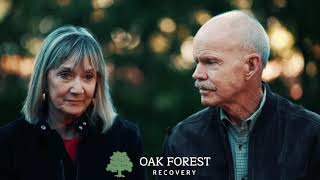We know. Maybe you’re not an addict. Maybe you’re going through a phase, or you had a rough month, or your situation looks worse than it is and when you try to explain, they just hear what they want to hear.
Here’s what we want you to know.
It’s not your family’s job to assign you that label. And it isn’t ours either. Our clinicians are trained to understand just how exactly what makes you tick makes you tick, but when all the chips are counted, there’s only one person whose opinion means anything. And that’s yours. We don’t say “Hi I’m John, and you’re an alcoholic.” It’s just not the way we operate.
So here’s what we want you to do. If your family is telling you that you have a problem, if they’re distancing themselves from you, or cutting you off financially, or cussing you out, cursing your name and generally showing you a discouraging lack of empathy, this is your assignment:
Empathize with them.
We know. It’s hard. It feels like they started it. But they’re scared. Of you, or for you, or both. And probably, on some level, you’re scared too.
However, if you can empathize with them, if you can show them compassion and listen to their concerns, you’ve already won a tremendous victory. And having won, maybe you’re ready for another fight. Maybe you’re ready to ask yourself if you’re an addict.
Or maybe you already know, and the next chapter of your story is waiting for you.
What defines you as an addict?
Addiction is a complex disorder that can be caused by both genetic and environmental factors. Addiction is characterized by compulsive use of a substance or behavior, despite harmful consequences to the individual or their loved ones.
There are many types of addiction, but what defines you as an addict is the inability to control your addiction despite its destructive consequences.
How Addiction can show up in your life.
Addiction is a serious mental health condition that can have a devastating impact on the addict’s life, as well as those around them. Addiction is a disease and it needs to be treated with care.
There are many ways to help and assist in someone’s recovery. Some people use medication like methadone or buprenorphine to help them withdraw from drugs. Others use behavioral therapies such as cognitive behavioral therapy, motivational interviewing and contingency management to manage their addiction.
There is help.
Often times we can find ourselves feeling alone and disconnected from the world in our struggle. At Oak Forest Recovery we are dedicated to helping you build a sober community that you can continue to grow with.
If you need more information what what addiction may look like or how it may show up in you or a loved ones life, please check out our resource pages.
If you or a loved one suffers from addiction please give us at call at 1-888-597-6257 or visit Oak Forest Recovery.
For more resources available in your area feel free to reach out to the Substance Abuse and Mental Health Services Administration. You can also find more information about substance abuse on John Hopkins Medicine website.



